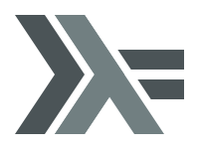
Haskell Symposium 2014
Göteborg, Sweden4 – 5 September, 2014
(directly after ICFP)

 |
Haskell Symposium 2014
Göteborg, Sweden |
 |
The ACM
SIGPLAN
Haskell Symposium 2014 will be
co-located with the
2014
International Conference on Functional Programming (ICFP),
in Göteborg, Sweden.
The purpose of the Haskell Symposium is to discuss experiences with Haskell and future developments for the language.
Topics of interest include, but are not limited to:
Papers in the latter two categories need not necessarily report original research results; they may instead, for example, report practical experience that will be useful to others, reusable programming idioms, or elegant new ways of approaching a problem. The key criterion for such a paper is that it makes a contribution from which other Haskellers can benefit. It is not enough simply to describe a program!
General advice on Functional Pearls and Experience Reports can be found on the ICFP'09 page (but note that our Experience Exports can be 6 instead of 4 pages). On Functional Pearls, see also JFP editorial advice.
Regular papers should explain their research contributions in both general and technical terms, identifying what has been accomplished, explaining why it is significant, and relating it to previous work (also for other languages where appropriate).
In addition, we solicit proposals for system demonstrations, based on running (perhaps prototype) software rather than necessarily on novel research results. Such short demo proposals should explain why a demonstration would be of interest to the Haskell community.
Please submit your paper or system demonstration proposal through Easychair.